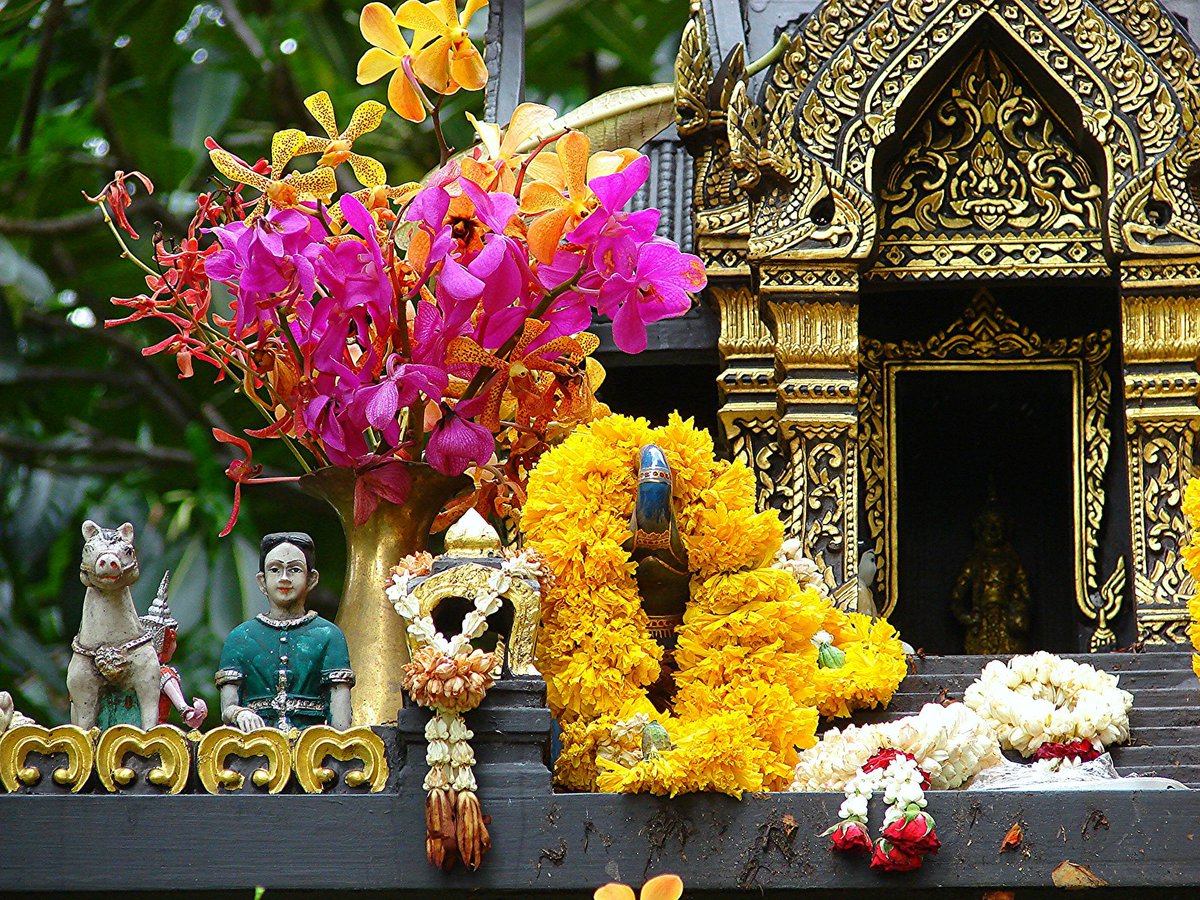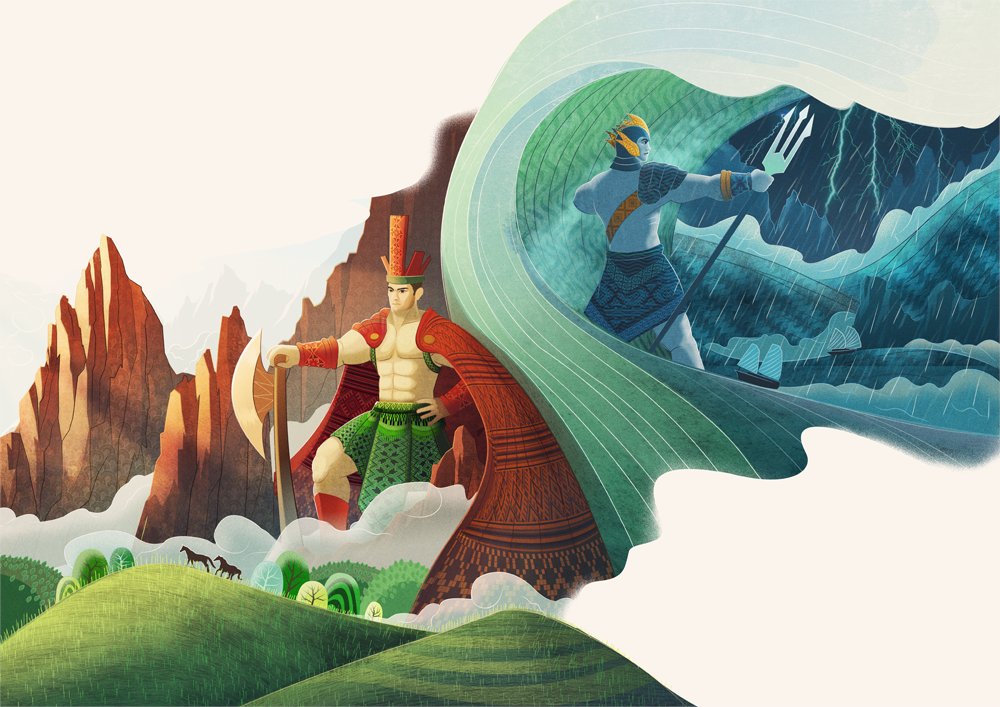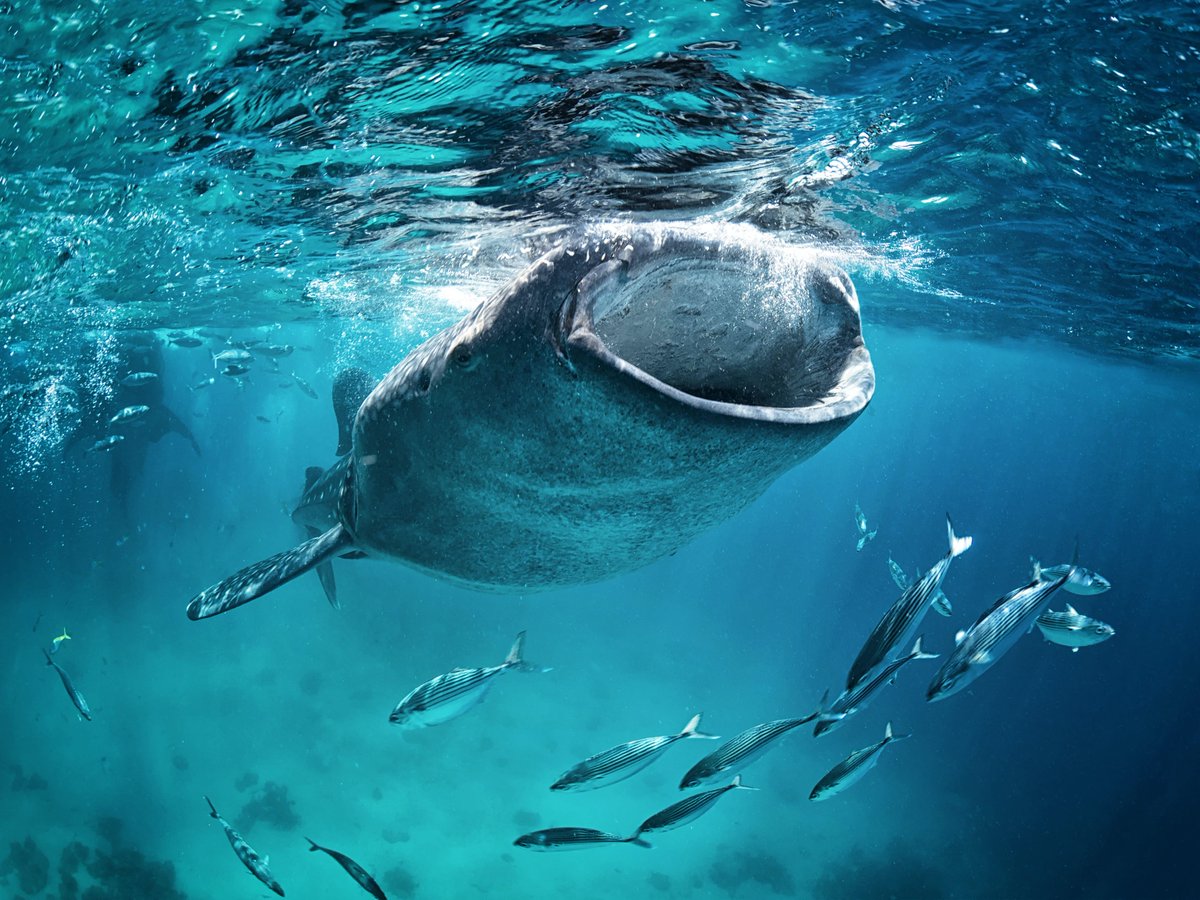For #Tolkien, Faerie is the land of endless beauty and peril, where humility is required. The concept is present in many of his works, but it's also something I'm familiar with from what's known as Hutan Larangan ("sacred forest").
A 🧵for #TolkienTrewsday #TolkienTuesday 1/8
A 🧵for #TolkienTrewsday #TolkienTuesday 1/8

In Tolkien's early writing, an explorer, Eriol, was about to enter a tiny magical house called the Cottage of Lost Play. The house asked him to will himself to be as tiny as the "little folk" to enter. We can read it as a test of humility. 2/8
🎨: Amani Warrington
🎨: Amani Warrington

One of Tolkien's "fairy poems" showed the consequence of acting with arrogance when you got a chance to enter the Faerie: the unnamed narrator was reduced to a rambling wreck, suffering an indescribable feeling of loss. 3/8
https://twitter.com/BlogTolkien/status/1667514979191525377
In many areas in Indonesia, Hutan Larangan are present as forests that must not be disturbed due to cultural/religious importance for local communities. The name's literal translation is "forbidden forest", and they are often surrounded by folklore, legend, and horror tales. 4/8 

Entering the forests often require no spitting, littering, cursing, wearing jewelry/ranked uniforms, etc. They are believed to invite ill lucks. Words like pamali (Sundanese) or kualat (Javanese) are thrown around, referring to ancient taboo and misfortunes due to disrespect. 5/8 

Many of these forests have local guardians. For example, Hutan Larangan Kampung Kuta in Ciamis, West Java, has a "kuncen", Maman, whose tasks include reminding people to follow the rules and respect the forests and local customs. 6/8
📷: Donny Iqbal for Mongabay Indonesia
📷: Donny Iqbal for Mongabay Indonesia

The show of humility in Tolkien's Faerie and Hutan Larangan reflect plea to respect the indescribable and unpredictable yet powerful things around us. Enter at you own peril, but humility may reward you with something beautiful. 7/8
📷: Donny Iqbal for Mongabay Indonesia
📷: Donny Iqbal for Mongabay Indonesia

I turned this thread into a blog post for Tolkien Reading Day 2023. Since the theme is "travel and adventure", I argued that humility is an important part in a journey, including into the Faerie; basically the essence of Tolkien's many writings. 8/8
putri2wotan.wordpress.com/2023/03/26/in-…
putri2wotan.wordpress.com/2023/03/26/in-…
• • •
Missing some Tweet in this thread? You can try to
force a refresh

 Read on Twitter
Read on Twitter






















